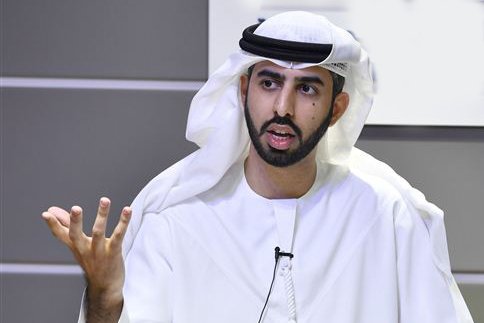In a move that could reshape how democracies embrace emerging technologies, the United Arab Emirates (UAE) has unveiled the world’s first policy regulating the use of artificial intelligence (AI) in national elections. The new framework, titled the National Elections Committee Policy on the Use of Artificial Intelligence, was revealed by Omar Sultan Al Olama, Minister of State for Artificial Intelligence, Digital Economy and Remote Work Applications, in partnership with the Federal National Council (FNC) and the Ministry of State for Federal National Council Affairs.
Key provisions and aims of the Policy
At the heart of the new policy is the requirement that every candidate in upcoming FNC elections must declare and register any use of AI tools in their campaigns. By enforcing transparency in AI deployment, the UAE aims to guard the integrity of electoral processes and prevent misuse such as algorithmically-driven persuasion, micro-targeting without disclosure, or deep-fake content used to manipulate voters.
Further, the policy underscores the UAE’s attempt to strike a balance: encouraging innovation in campaign outreach while setting guardrails to prevent unfair influence.
“AI can help candidates reach a broader audience, but it can also be misused to influence voters unfairly,” “In the UAE, all AI applications in campaigns must be declared, reviewed, and monitored to ensure fairness.”
– Al Olama. (UAE minister for AI)
A proactive, balanced governance model
According to the Minister, the policy marks a significant step in the UAE’s broader strategy for governing emerging technologies. The country has adopted the National AI strategy 2031 and the national program for artificial intelligence as a reference point for AI deployment across government and private sectors.
Al Olama contrasted the UAE’s approach with regulatory models elsewhere: citing the European Union’s “stringent regulations” that might slow innovation, and the United States’ “flexible, non-binding guidelines” that have spurred rapid growth. Against this backdrop, the UAE positions itself as pursuing a “balanced path – one of proactive legislation combined with continuous innovation.”
Another noteworthy innovation: The UAE has introduced an “integrated smart legislative system” powered by AI designed to modernise how laws are studied, drafted and evaluated, by analysing technical details, assessing economic and social impacts, and providing data-driven insights for policymakers. “The goal isn’t to replace human legislators, but to empower them with data-driven intelligence.”
Broader implications and risk mitigation
There is clear recognition in the UAE that AI brings both opportunity and risk. In the media domain, the policy announcement flagged the use of AI in journalism and digital content creation as a growing concern. With 81 % of journalists reportedly using AI in daily work, but fewer than 13 % of media institutions having formal AI-use policies, the UAE sees a gap in oversight of the content-creation ecosystem.
On privacy, the Minister stated that AI’s ability to analyse personal data with high precision places data protection “among the UAE’s foremost legislative priorities.” Global figures cited during the announcement show that 88 % of workers already use AI directly or indirectly, and the World Economic Forum estimates AI could create more than 69 million new jobs and generate over US$407 billion in global economic value by 2027.
Why it matters?
By being the first country to adopt such a policy at national election level, the UAE is setting a precedent in the intersection of democracy, digital governance and AI. For countries grappling with how to regulate AI-powered campaign tools, micro-targeting, bots, deep-fakes and misinformation, the UAE framework provides a tangible model: transparency, mandatory registration of AI use, oversight of content, and parallel focus on privacy and societal trust.
Given the speed at which AI tools are evolving, many democracy systems globally are playing catch-up. The UAE’s policy underscores that governance need not wait until after misuse is detected — it can be anticipatory.
What’s next for the UAE?
The imminent application of the policy will be during the next Federal National Council elections, where candidates will register their AI-tool usage, subject to review and monitoring. The UAE’s regulatory “legislative laboratories” — test-environments where new laws are trialled before national rollout — will likely play a pivotal role in fine-tuning enforcement and identifying unintended outcomes.
As AI continues to evolve (for instance, generative models capable of creating synthetic media, deep-fake voices, automated persuasion bots), the UAE’s policy may need dynamic updates. The UAE has already signalled that AI regulation is a shared societal responsibility: “It is not the task of governments alone… government, society, individuals, and the private sector” must collaborate.
From a global vantage, the UAE’s policy positions the country not just as an AI adopter, but an AI governance leader. As other nations grapple with AI’s impact on democratic processes, disinformation, privacy and media integrity, the UAE’s approach may become a reference point, or spark debate about best practices.
Conclusion
The UAE’s unveiling of the world’s first AI policy for national elections is more than a regulatory milestone , it’s a signal of how seriously states are beginning to take the interplay between artificial intelligence and democratic governance. While questions remain about enforcement and unintended consequences, the policy offers a forward‐looking and comprehensive template. For democracies, tech regulators and civil society alike, the UAE has raised the bar.
Whether this becomes a blueprint for others or a unique regional innovation remains to be seen. What is clear, however, is that AI is no longer just a technological frontier — it is now a governance frontier, and the UAE has stepped into the lead.

